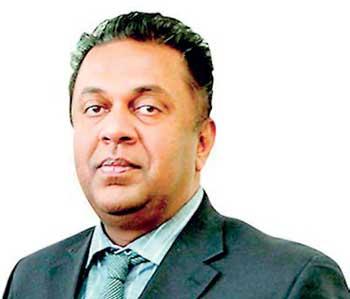31 Mar 2020 - {{hitsCtrl.values.hits}}
 By Yohan Perera
By Yohan Perera
Parliament must have the opportunity to scrutinise and debate the pre-election budgetary provision report which the government has come up with, former Finance Minister Mangala Samaraweera said in a statement yesterday.
“The Government has still not provided the Committee on Public Finance with detailed estimates of its tax-cuts revenue effects. It has presented a report on the economy that sets us on a path to crisis and is replete with inaccurate estimates. Parliament must have the opportunity to scrutinise and debate this Report. Parliament must also be able to convene to legislate in order to provide the country with the relief it needs at this precarious time” the former Minister said in a statement yesterday.
He said the House should discuss the cash crunch and debt issues as well.
Mr Samaraweera also said the following in his statement.
“Parliament holds power over state finances. This is the opening line of our Constitution’s chapter on finance. Until April 30, a Vote-on-Account passed by Parliament - setting-out Government revenue, expenditure and the borrowing limit – is the legal framework within which public finance must operate.
However, the Pre-Election Budgetary Position Report refers to a so-called ‘Vote-on-Account’ authorized by the President for the period March, April and May. This raises the paradox of a Vote-on-Account without a vote. Presidents cannot authorise Votes-on-Accounts. Only Parliament can approve a Vote-on-Account. This Presidential action is prima facie inconsistent with the Constitution and usurps the Parliament sanctioned Vote-on-Account.
Even more worrying, is that this does not appear to be an oversight. The Pre-Election Budgetary Position Report explicitly refers to Section 150(3) of the Constitution as authority for this irregular move. This is disingenuous. Section 150(3) reads as follows.
“Where the President dissolves Parliament before the Appropriation Bill for the financial year has passed into law, he may, unless Parliament shall have already made provision, authorize the issue from the Consolidated Fund and the expenditure of such sums as he may consider necessary for the public services until the expiry of a period of three months from the date on which the new Parliament is summoned to meet.”
“Parliament holds power over state finances. This is the opening line of our Constitution’s chapter on finance. Until April 30, a Vote-on-Account passed by Parliament - setting-out Government revenue, expenditure and the borrowing limit – is the legal framework within which public finance must operate
As is evident above, the provision places two important limitations on the president’s ability to draw from the Consolidated Fund after an election is announced. First, it states that the President can draw from the Consolidated Fund, “unless Parliament shall have already made provision.” Through the Vote-on-Account ending April 30, Parliament has made such provision. Therefore, the President cannot authorize any funds from the Consolidated Fund till then. Second, after April 30, any funds authorized from the Consolidated Fund can only be those “necessary for the public services.” In laymen’s terms, this means government salaries and continuance of essential government services. This becomes evident when 150(3) is read in conjunction.
19 Nov 2024 1 hours ago
18 Nov 2024 9 hours ago
18 Nov 2024 18 Nov 2024
18 Nov 2024 18 Nov 2024
18 Nov 2024 18 Nov 2024